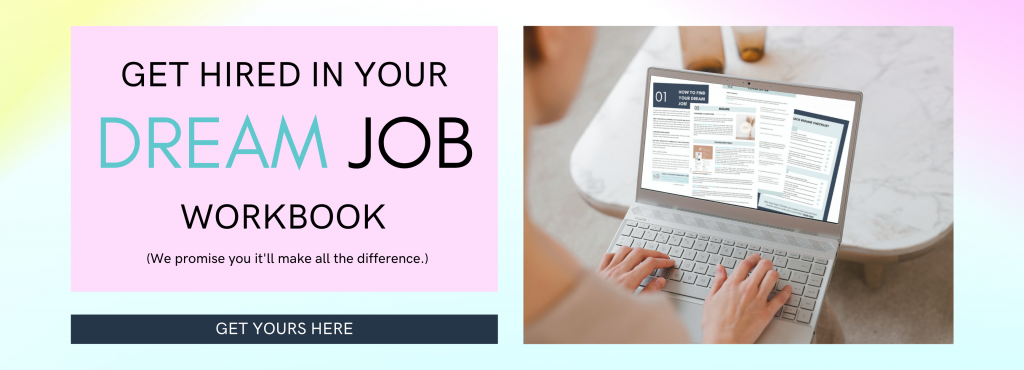
There are plenty of dealbreakers that cost skilled applicants jobs time and time again. Hiring managers have quite a few in mind, and if even one comes up during the middle of an interview, that applicant will be written off immediately. But, how do you avoid being that applicant? Here are some of hiring managers’ top dealbreakers and how you can turn them into dealmakers – how you can do the opposite and get yourself that job!
1. Dealbreaker: Bad-mouthing past jobs
Unfortunately, bad work experiences happen to plenty of people. During the course of your career, it’s likely you’ll run into bad bosses, rude coworkers or tough situations. While you shouldn’t be afraid to keep your mouth shut about these situations, the one place you absolutely shouldn’t discuss them is during the hiring process. This is because the hiring manager has no way of knowing whether or not you’re being truthful and they want someone with maturity and discretion. They’d rather hire someone who said nothing about their past employers at all than take a risk on someone who may be lying and bring drama into the workplace.
Dealmaker: Positivity about all past work experiences! There’s a chance you’ll be asked about your old work experiences and you need to look like a positive team player. You don’t have to lie, but find positives in every job that you’ve had. Maybe you were in a toxic work environment at your last workplace, but focus on the good that came out of that job – you still gained experience, strengthened your portfolio, put in effort and overcame obstacles. Discuss those things instead of the negatives.
2. Dealbreaker: Arrogance
Applying for jobs involves speaking highly of your skills and accomplishments – while doing this, be careful to never come across as arrogant. Don’t act like you’re above the job you’re applying for, or act like you can singlehandedly uplift the company.
For instance, in interviews for social media marketing jobs, a common question that’s asked is what the applicant would change about the company’s current social media presence. When answering this question, you wouldn’t put down what’s already been done or talk about how they desperately need improvement, you’d simply talk about how you can build on the social media backdrop that already exists. Yes, you need to be clear about how you’ll be an asset to the company, but don’t act like they’re beneath you and need you to go on.
Dealmaker: Confidence! All of the above being said, being self-conscious about your work experience is also a dealbreaker – you should be as confident as you can. After all, you worked extremely hard to get where you are today, and you should be proud of it! Employers still want to see an assertive personality who knows they’re going to walk into a workplace and add to it – just not one who’s looking to take it over entirely, or move on to something they feel they’re more worthy of.
3. Dealbreaker: Lack of interest in the company
Hiring managers are going to ask questions to measure your knowledge of the company. If you come across like you have no knowledge at all, they won’t be very impressed even if your skills and experience are incredible. Don’t answer any questions asked about the company with vague answers or “I don’t know”, and don’t neglect opportunities where you could show interest in the company – the biggest example of this is not asking any questions about it at the end of the interview when you’re prompted to ask questions. All of these things signify to the hiring manager that you don’t care about the company, so why would they bother hiring you when another applicant may care more about the work they do?
Dealmaker: Asking questions and demonstrating research! Before you go into any interview, you should be researching the company as much as you can. Know the company’s history, know their core values, know work that they’ve done in the past. Peruse their personal website, press releases, their social media presence, whatever you can find, and make notes. You should be able to confidently answer questions about the company in the interview, as well as sprinkle in details you learned (for example: “I want to work here because my values line up with the company’s” and go into details about said values, or “I really admired this specific past campaign you did”). At the end of the interview, when it’s your time to ask questions, you should also demonstrate that you want to learn even more about the company: what does a day in the life look like at this workplace? In your experience, what’s the best thing about working here? There’s much more you can ask, too – just show your interest!
Whatever you do, never exaggerate or be dishonest. Just be as prepared, polished and professional as you can while staying true to your personality and feelings. Do research or make notes if you have to, whether that be regarding the company itself or ways you can inject positivity into your poor work experiences. Then, watch yourself close those deals!
Want to make sure you land the next gig you apply to? Purchase a Style Nine to Five Get Hired in Your Dream Job Workbook!
Emily Morrison is a media professional with passions for writing, film and popular culture.
Feature Image: Adobe Stock

